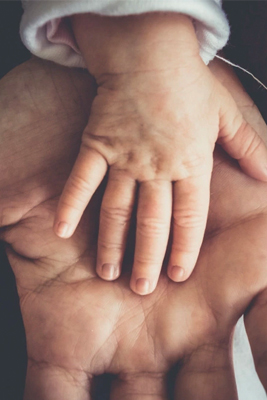Parent Mindset: The ABCs of managing child behavior issues

Advocating for Children and Family Programs at KSU
KENNESAW, Ga. (Mar 21, 2019) — Original blog by KSU Strategic Communication, March 18, 2019.
TODDLER MELTDOWNS OVER CONCEIVABLY ANYTHING, strong-willed preschoolers who defy your parental commands, or school-aged children who act out in class and don’t follow the rules. As parents, how do you overcome these behavior hurdles?
Allison Garefino, clinical director of Children and Family Programs at KSU’s Center for Conflict Management, teaches parents skills to handle some of the challenges that come with behavior issues in children.
Parent-teacher conferences tend to be a catalyst for many parents, and that’s when many reach out to Garefino.
“Most of the time, they’re just looking for what to do to help their child succeed. We all just want what’s best for our kids,” she said.
“We all just want what’s best for our kids.”
Allison Garefino, clinical director of Children and Family Programs at KSU’s Center
for Conflict Management
Garefino teaches parents and teachers skills to help modify behavior and create new
patterns for how tasks are approached. Her training focuses on three particular areas:
- Antecedents, patterned actions that happen before behaviors that influence them;
- Behaviors, actions a child does that parents wish to change; and
- Consequences, results that happen after behaviors.
These are most frequently explained as the ABCs of behavior modification.
“Consistently changing the ways an adult responds to a child’s behaviors, we teach new ways to behave,” Garefino explained.
To reinforce the ABCs, Garefino suggests parents:
1. Build on the positive
For many children, they hear nothing when they do something well or perform something
that is asked of them. Instead, they get the most attention when they act out or disobey.
Garefino recommends reversing giving attention to negative behaviors to focus on the
positive things your child is doing. For example, praise your child for sitting down
to start their homework and ignore their whining about it.
2. Have more play time
One of the most powerful things that you can do with your child is to play with them.
The play should be without electronics and without any intention of teaching anything.
The goal is to have fun together. It doesn’t have to be for a long period of time,
but it should be consistent each day.
3. Understand it may get worse before it gets better
Making changes to routines and patterns may make behaviors worse as children adjust
to the new rules and enforcements. It may be challenging for both of you – parent
and child – but these changes in behavior will gradually improve. Garefino advises
parents to stay strong and consistent in these new ways of doing things.
These ABCs are a great starting point for parents to work with their children to modify behavior and start to create new habits and social skills that will serve for a lifetime.











